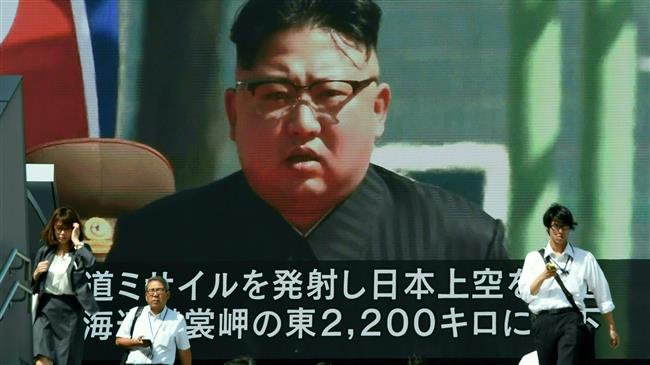Japan says North Korea continues to pose a “serious and imminent threat” to the country despite Pyongyang’s suspension of its missile and nuclear tests as well as diplomacy involving the United States and South Korea.
“There is no change in our basic recognition concerning the threat of North Korea’s nuclear weapons and missiles,” the Japanese Defense Ministry declared in a defense review on Tuesday.
Japan’s 2018 military white paper said Pyongyang continued to pose “an unprecedentedly serious and imminent threat to Japan’s security and significantly damage the peace and security of the region and the international community.”
Japanese Defense Minister Itsunori Onodera did acknowledge in the official document, however, that North Korea had engaged in “dialog” with its former arch-foes, the United States and South Korea.
“But we cannot overlook the fact that, even to this day, it possesses and fully deploys several hundred missiles that put nearly all of Japan within range,” Onodera added.
In response, Japan is steadily improving its capacity to protect the country from the perceived North Korean threat, reportedly planning to spend nearly $4.2 billion over the next three decades on installing and operating US-supplied radar systems.

Earlier, North Korea released and deported a Japanese prisoner on humanitarian grounds.
Back in April, North Korean leader Kim Jong-un ordered the suspension of North Korea’s missile and military nuclear tests and said Pyongyang would pursue economic growth and peace.
In one such test, late last year, North Korea had flown a missile over Japanese airspace.
But a diplomatic thaw began between the two Koreas in January. Diplomacy with the US also ensued. While North Korea’s ties with South Korea have improved considerably since then, diplomatic engagement with the US has hit a snag.
Japan had all along been skeptical about attempts to engage North Korea. Tokyo was particularly concerned about the prospect of a US withdrawal from the region as part of a potential deal between Washington and Pyongyang.
China
The Japanese white paper also addressed China’s emergence as a military power in the region, expressing concerns about Beijing’s growing military spending.
It claimed that China was attempting to “change the status quo by coercion,” echoing US assertions that Beijing seeks to expand its naval activities around islands in the East China Sea disputed with Tokyo as well as military build-up in territory in the South China Sea disputed by other regional countries.
